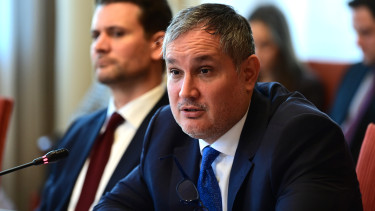A change of model is needed in health care, expert from Türkiye claims

He stressed that in the current system, patients are often forced to go to several different places to receive care. In the capital they have to commute between Buda and Pest or travel to the countryside. This is a waste of time and resources.
The objective is to build a system where patients can get all the treatment they need in one place and where doctors have a better understanding of their patients' needs and medical history.
In Türkiye, especially in Istanbul, the health market is fragmented and the balance between the public and private sectors is not right. The private health sector is not always able to deal with the most complex cases, and many patients are returned to public hospitals. Ahmet E. Usta suggests that the private sector should better integrate the care of complex cases.
Read Portfolio's exclusive interview with Ahmet E. Usta here:
The current market situation will take a long time to change, but Ahmet E. Usta believes that the implementation of patient-centred care will improve the quality and efficiency of healthcare services. By introducing a new model, healthcare institutions can also become more attractive to doctors, and this could help strengthen the system as a whole.

They have come to Hungary to transfer the knowledge they have acquired in the Turkish market. The problem, he said, is that patients have to wait a long time for treatment in Türkiye, but it is also not good that doctors have to work partly in the public and partly in the private health sector. Ideally, a private hospital should be able to employ a doctor full time.
The success of the co-financing model in Türkiye, which was introduced in 2004, is an inspiration for the company's managers, who believe that a similar system could be implemented in Hungary.
After the model was introduced, the number of private hospitals in Türkiye increased from 80 to 500 and the country became attractive to foreign investors.
The Liv Hospital Group has a long history with several brands and 33 hospitals worldwide, including Türkiye, Hungary and Azerbaijan. They plan on expanding to Western Europe. They have more than 25,000 employees, including 3,400 doctors, and treat nearly 10 million outpatient cases a year. They performed more than 1,000 organ transplants last year and have extensive experience in complex surgical procedures. The group also has a university with 17,000 students from more than 100 countries.
Cover photo: Portfolio







